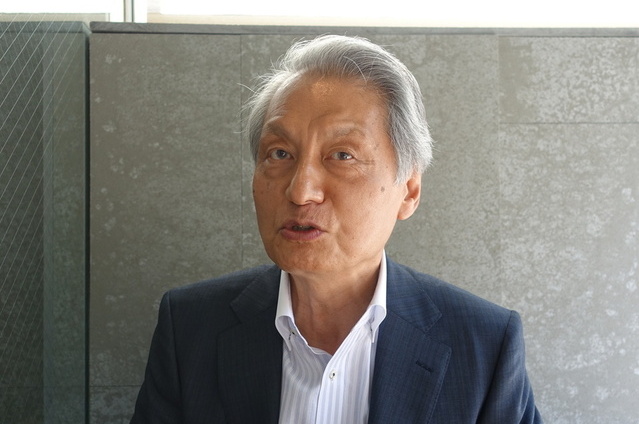 |
|
Professor Lee Jong-won of Waseda University (Hankyoreh archive)
|
Inter-Korean summit is a “guide” for the North Korea-US summit, not a definitive conclusion
The Japanese reaction to the inter-Korean summit has been rather lukewarm. Tokyo has reserved its judgment on the grounds that the summit did not include any details about denuclearization. On Apr. 28, the Hankyoreh met with Lee Jong-won, a professor at Waseda University who has provided Japanese society with a balanced perspective on Korean Peninsula affairs. While Japanese Prime Minister Shinzo Abe might appear to be exploring the possibility of a summit with North Korea and laying the groundwork for such a meeting, Lee said, his administration has little room to maneuver. Hankyoreh (Hani): Let’s start off by hearing your assessment of the summit. Lee Jong-won (Lee): I regard it as halfway successful. I focus on the appearance of “complete denuclearization” in the Panmunjom Declaration. Prior to that, North Korea had used indirect expressions about the “final teachings of our ancestors.” This summit is acting as a “guide” for the North Korea-US summit. A complete assessment won’t be possible until after the North Korea-US summit. If that summit is a failure, there will be a massive backlash. Some Japanese newspapers have criticized the summit for not containing any details about denuclearization. But that criticism is either exaggerated or reflects a lack of understanding that this summit is serving as a guide for the North Korea-US summit. Hani: Some are raising the possibility of a North Korea-Japan summit. Lee: Japan doesn’t seem capable of setting a definite direction. Some people still seem to think that US President Donald Trump will ultimately retain a hardline stance toward North Korea. Structurally speaking, success at the North Korea-US summit will force Japan to seek negotiations with the North. If discussions about making a peace treaty get underway and the US and China are at the center of the negotiations, Japan will also look for a chance to participate. Abe has not been a fan of the Pyongyang Declaration [reached by former Japanese Prime Minister Junichiro Koizumi and former North Korean leader Kim Jong-il in 2002 as part of efforts to normalize diplomatic relations], but he has started to mention it. He appears to be exploring the possibility of a summit with the North and laying the groundwork for it. But since the Abe administration’s “centripetal force” is weakening, holding a hardline course on the North could provoke skepticism, and attempting to change course could trigger cynicism that he’s just trying to evade the crisis. Even if there’s a handover of power, the incoming administration will need some time to gather political strength. For the time being, Japan isn’t likely to be spearheading any bold diplomacy. Hani: The tricky issue of the abductees has to be resolved before a North Korea-Japan summit can be held… Lee: The Abe administration is demanding the repatriation of all the abductees, based on the assumption that the eight people that North Korea said were dead when Koizumi visited Japan are actually still alive. North Korea will be hoping that this requirement will be eased. The Japanese are also feeling a little fatigued about the lack of progress on this issue. It’s possible that they will eventually ease the requirement. Hani: Japan is also emphasizing the issue of short- and medium-range missiles. Lee: The threat of short- and medium-range missiles has been blown out of proportion. I’m not saying they aren’t a threat to Japan. This problem has been around for a long time. Just because the US is only dealing with nuclear weapons and ICBMs [intercontinental ballistic missiles] doesn’t mean that short- and medium-range missiles pose a new threat to Japan. The idea of a grand bargain that would also deal with this issue is unrealistic. This is something that Japan can deal with in negotiations with North Korea. The Pyongyang Declaration even talks about postponing missile launches. By Cho Ki-weon, Tokyo correspondent Please direct questions or comments to [english@hani.co.kr]






